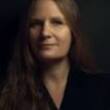Body Work: The Radical Power of Personal Narrative
(Libby/OverDrive eBook, Kindle)
Available Platforms
Description
More Details
Similar Titles From NoveList
Similar Authors From NoveList
Published Reviews
Booklist Review
In her author's note for this guide to crafting personal writing, memoir-essayist and University of Iowa professor Febos (Girlhood, 2021) offers a welcoming invitation: "Let this book be a totem of permission, encouragement, proof, whatever you need it to be." In the four essays that follow, Febos stays true to that gentle command in pieces that reclaim the term "navel-gazing" for the essential work of recognizing the silenced (and often marginalized) self, expand readers' perceptions of what writing about sex can be, offer important food for thought on the practicalities of writing others into your work, and drift effectively into the philosophy behind the not-so-simple art of being oneself and writing about it. Staying true to her message that writing about the self can make for great and even transcendent art, Febos includes many gripping personal anecdotes in a book that remains instructive to its core. Above all, Febos offers the space and tools to reflect, rethink, revisit, and reimagine--in service of good writing, and good living--with grains of truth that reader-writers will want to keep close.
Publisher's Weekly Review
Memoirist Febos (Girlhood) assembles four whip-smart essays on the power of personal writing, which mark her "attempts to describe the ways that writing is integrated into the fundamental movements of my life: political, corporeal, spiritual, psychological, and social." "In Praise of Navel Gazing" is a defense of memoirs focused on trauma, which she suggests are often seen as "gauche": "the resistance to memoirs about trauma is always in part... a resistance to movements of social justice." In "Mind Fuck," she details a series of "unrules" for writing about sex: "sex doesn't have to be good" and "writing about sex doesn't have to include sex at all." "A Big Shitty Party" shares hard-learned insights on writing about real people in nonfiction (when people give Febos permission to include them, "what they actually mean is that I have their permission to write anything about them that they can imagine I might"), and "The Return" makes a case that personal writing can help one deal with painful experiences. Febos's fellow scribes will appreciate her shrewd takes on the intersection of craft and life, and even nonwriters will enjoy the artistry on display throughout. This is a wonder. Agent: Ethan Bassoff, Ross Yoon Agency. (Mar.)
Library Journal Review
Like her memoir Whip Smart, Febos's newest book is not a story about her body; rather, it is written through and with her sexual and physical experiences in such a way that it radically destabilizes boundaries between meaning, intelligibility, corporeality, intimacy, and so much more--all through the practice of storytelling. This is a book for both writers and readers who feel like their bodies are telling stories, even if they do not ever want to put those stories into words. Throughout, Febos shares her own approach to storytelling, with insight on what motivates her to write and what kept her going during the writing process of both Whip Smart and this latest work. Febos says that the path to writing about herself involved reflecting on her past--her years navigating addiction and recovery, her time engaging in sex work, and her studies in an MFA program at Sarah Lawrence before she accepted her current role, in the nonfiction writing program at the University of Iowa. VERDICT Wide-ranging in its theoretical and historical breadth yet intimate in all ways, Febos's book offers the tools readers need to identify, access, process, and articulate hard-won stories of trauma and of love that their flesh holds.--Emily Bowles
Kirkus Book Review
A writer known for her candid autobiographical writing about sex, trauma, and female identity lays out the tenets of her craft. Febos takes no prisoners in this strongly worded manifesto--despite her claim on the first page that it is not a manifesto. In fact, her impassioned theses and proclamations about writing are exactly that. Proceeding from the principle that "writing is a form of freedom more accessible than many and there are forces at work in our society that would like to withhold it from those whose stories most threaten the regimes that govern this society," she turns the charge of "navel-gazing" on its head. She further points out that memoirists do not publish raw therapeutic diaries but crafted literary works with the power to change the world. Her blunt anger is understandable. "At readings I would be billed on posters as MELISSA FEBOS, FORMER DOMINATRIX, alongside my co-reader, [INSERT MALE WRITER NAME], POET." In a chapter called "Mind Fuck," Febos lays out rules for writing about sex, starting with "You can use any words you want," and she illustrates her points with well-chosen quotes from writers like Marie Howe, Nancy Mairs, Carmen Maria Machado, and Cheryl Strayed. In a useful chapter addressing the pitfalls of writing about other people, Febos describes her own approach and practices, developed via hard experience. A section called "Mom Goggles," for example, goes right to the question many readers may have about the writer's often X-rated work: Does her mother read it? It turns out she does, along with other family members, prior to publication. The author's exhortations with regard to craft--"every single notation--every piece of punctuation, every word, every paragraph break in a piece of writing is a decision"; "The I of [the] narrator is not the I that writes the book"--are crucial, likely distilled from her lectures at the University of Iowa. Sharp insights from a passionate practitioner and champion of memoir. Copyright (c) Kirkus Reviews, used with permission.
Booklist Reviews
In her author's note for this guide to crafting personal writing, memoir-essayist and University of Iowa professor Febos (Girlhood, 2021) offers a welcoming invitation: "Let this book be a totem of permission, encouragement, proof, whatever you need it to be." In the four essays that follow, Febos stays true to that gentle command in pieces that reclaim the term "navel-gazing" for the essential work of recognizing the silenced (and often marginalized) self, expand readers' perceptions of what writing about sex can be, offer important food for thought on the practicalities of writing others into your work, and drift effectively into the philosophy behind the not-so-simple art of being oneself and writing about it. Staying true to her message that writing about the self can make for great and even transcendent art, Febos includes many gripping personal anecdotes in a book that remains instructive to its core. Above all, Febos offers the space and tools to reflect, rethink, revisit, and reimagine—in service of good writing, and good living—with grains of truth that reader-writers will want to keep close. Copyright 2022 Booklist Reviews.
Library Journal Reviews
Like her memoir Whip Smart, Febos's newest book is not a story about her body; rather, it is written through and with her sexual and physical experiences in such a way that it radically destabilizes boundaries between meaning, intelligibility, corporeality, intimacy, and so much more—all through the practice of storytelling. This is a book for both writers and readers who feel like their bodies are telling stories, even if they do not ever want to put those stories into words. Throughout, Febos shares her own approach to storytelling, with insight on what motivates her to write and what kept her going during the writing process of both Whip Smart and this latest work. Febos says that the path to writing about herself involved reflecting on her past—her years navigating addiction and recovery, her time engaging in sex work, and her studies in an MFA program at Sarah Lawrence before she accepted her current role, in the nonfiction writing program at the University of Iowa. VERDICT Wide-ranging in its theoretical and historical breadth yet intimate in all ways, Febos's book offers the tools readers need to identify, access, process, and articulate hard-won stories of trauma and of love that their flesh holds.—Emily Bowles
Copyright 2021 Library Journal.Publishers Weekly Reviews
Memoirist Febos (Girlhood) assembles four whip-smart essays on the power of personal writing, which mark her "attempts to describe the ways that writing is integrated into the fundamental movements of my life: political, corporeal, spiritual, psychological, and social." "In Praise of Navel Gazing" is a defense of memoirs focused on trauma, which she suggests are often seen as "gauche": "the resistance to memoirs about trauma is always in part... a resistance to movements of social justice." In "Mind Fuck," she details a series of "unrules" for writing about sex: "sex doesn't have to be good" and "writing about sex doesn't have to include sex at all." "A Big Shitty Party" shares hard-learned insights on writing about real people in nonfiction (when people give Febos permission to include them, "what they actually mean is that I have their permission to write anything about them that they can imagine I might"), and "The Return" makes a case that personal writing can help one deal with painful experiences. Febos's fellow scribes will appreciate her shrewd takes on the intersection of craft and life, and even nonwriters will enjoy the artistry on display throughout. This is a wonder. Agent: Ethan Bassoff, Ross Yoon Agency. (Mar.)
Copyright 2021 Publishers Weekly.Reviews from GoodReads
Citations
Febos, M. (2022). Body Work: The Radical Power of Personal Narrative . Catapult.
Chicago / Turabian - Author Date Citation, 17th Edition (style guide)Febos, Melissa. 2022. Body Work: The Radical Power of Personal Narrative. Catapult.
Chicago / Turabian - Humanities (Notes and Bibliography) Citation, 17th Edition (style guide)Febos, Melissa. Body Work: The Radical Power of Personal Narrative Catapult, 2022.
Harvard Citation (style guide)Febos, M. (2022). Body work: the radical power of personal narrative. Catapult.
MLA Citation, 9th Edition (style guide)Febos, Melissa. Body Work: The Radical Power of Personal Narrative Catapult, 2022.
Copy Details
| Collection | Owned | Available | Number of Holds |
|---|---|---|---|
| Libby | 2 | 2 | 0 |
































